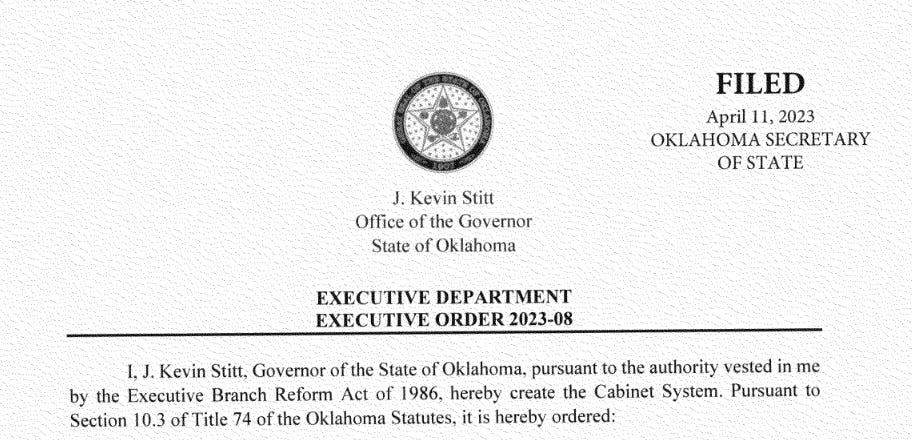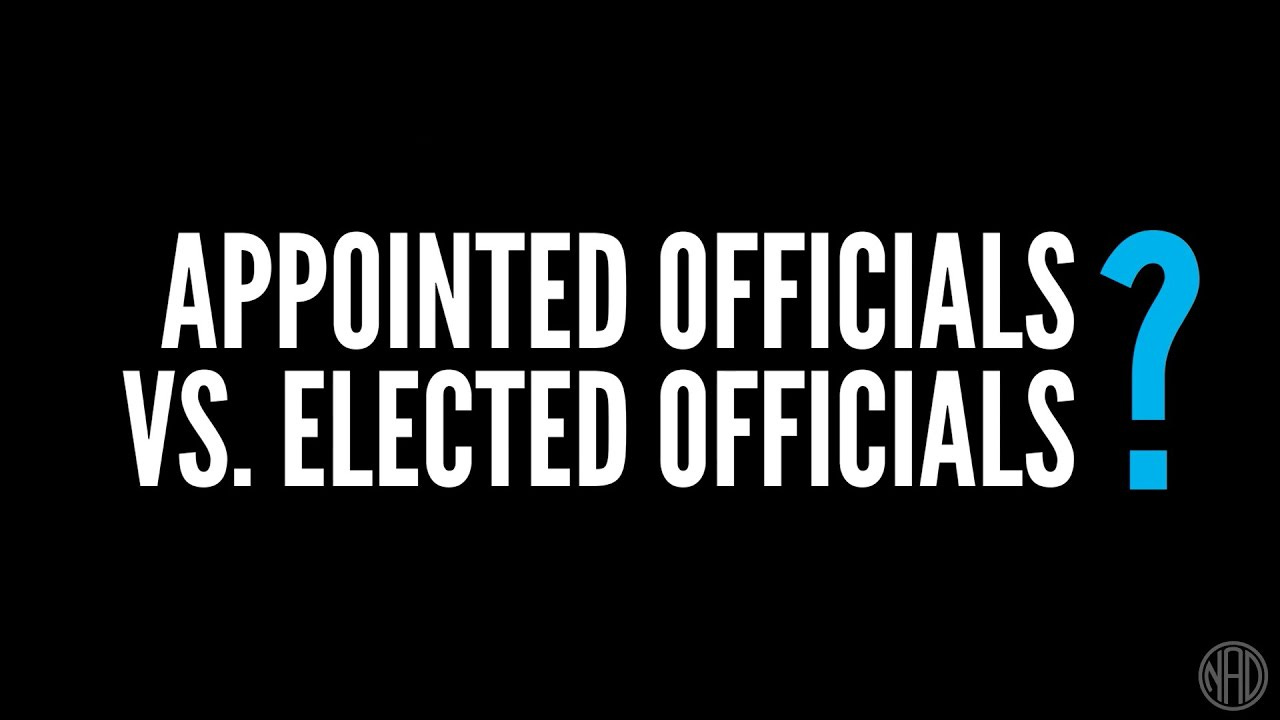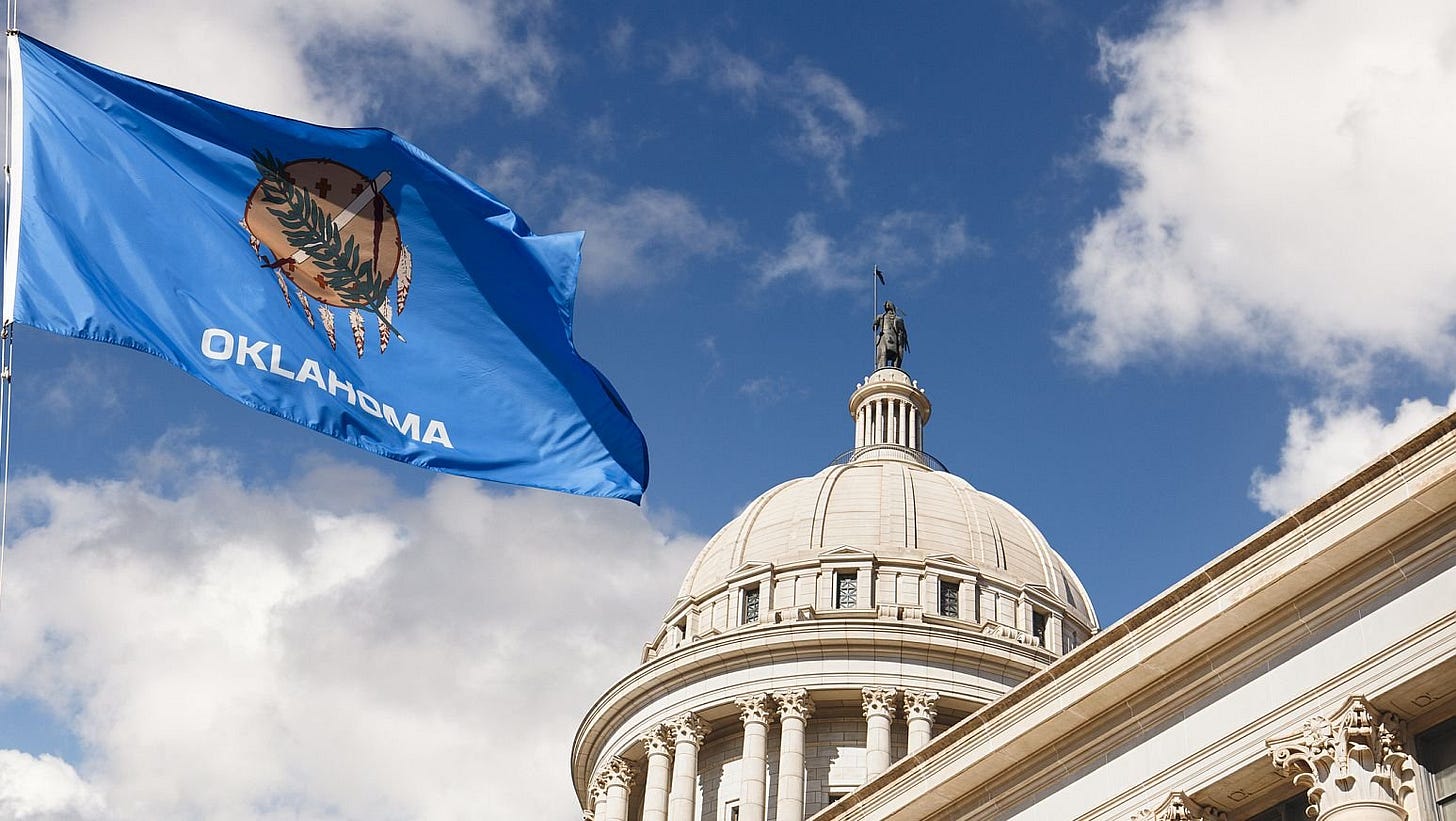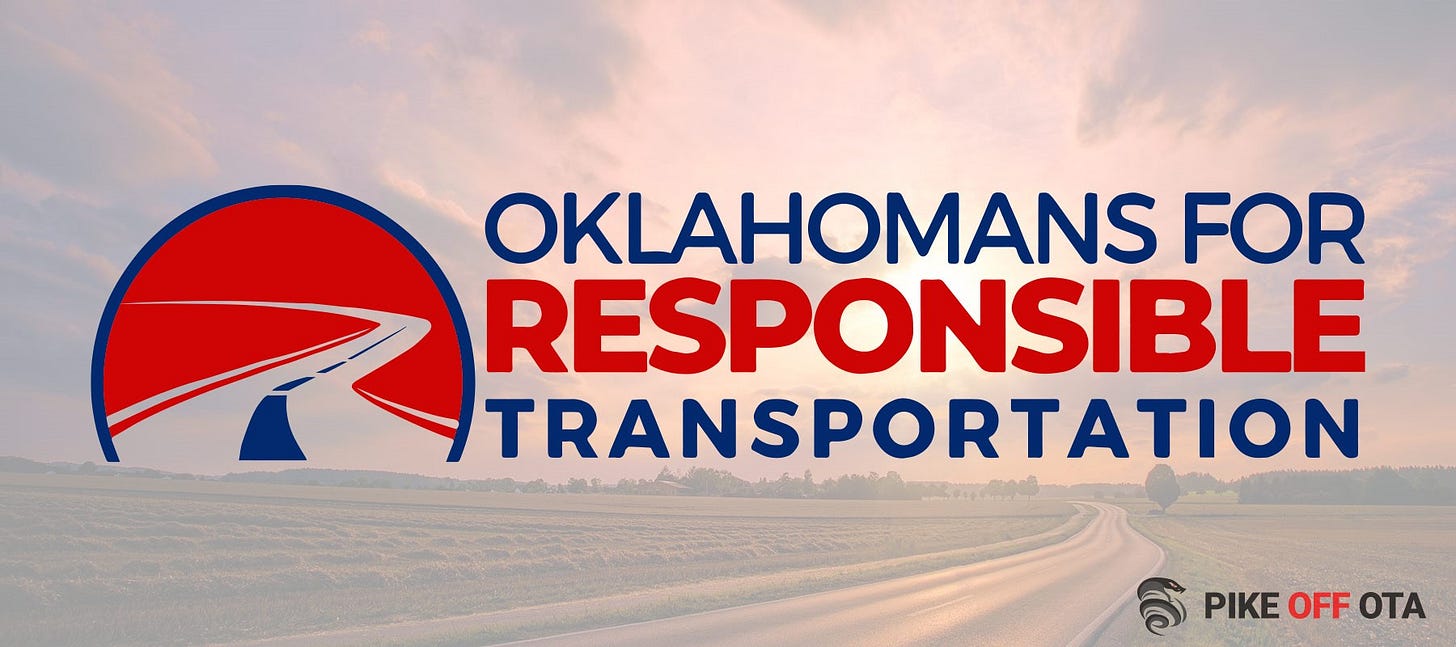Winning! Court Finds Cabinet Secretaries ARE Office Holders and Cannot Hold More than One Office
How long until Governor Stitt files an appeal to his Captured Supreme Court?
On Friday, May 31st, Oklahoma County District Judge Richard Ogden levied his opinion about the legality of one person holding more than one state office simultaneously (CV-2024-606).
To get a background of the nitty gritty of this lawsuit, please check out my previous post: “Just because something has always been done, doesn’t mean it’s right (or even legal).”
This lawsuit was filed in response to the Oklahoma Attorney General’s (OAG) opinion (2024-5) published on February 28, 2024 that found:
On March 7th, Governor Stitt’s team filed a Petition for Declaratory Judgment asking the Oklahoma County District Court to declare that
the Governor may appoint cabinet Secretaries from among all agency heads within the cabinet areas, regardless of whether the posts are offices and
Secs. Arthur (Agriculture), Zumwalt (Tourism, Wildlife and Heritage) and Shropshire (Human Services) may simultaneously serve as heads of their respective agencies, regardless of whether the posts are offices without operating in violation of the dual office holding prohibition in Statute 51, Section 6.
Remember that after this lawsuit was filed, the Legislature jumped in to help only the Secs. of Agriculture and Licensing and Regulation by creating and passing a bill (SB1196) through the system in EIGHT DAYS that gave exemptions from the dual office holding clause to specifically these two cabinet positions and left out the rest of Stitt’s cabinet. AND THE GOVERNOR VETOED IT.
But back to the District Court Lawsuit.
What is the role of a Cabinet Secretary?
Is a cabinet Secretary an official “office holder” with the ability to exercise state sovereign powers (like vetoing proposed administrative rules, etc.) or an advisor to the Governor?
Well.. that’s an interesting question, because when the Governor’s Cabinet was created in Title 74, Section 10.3 Paragraphs B1, B2 and B3 in 1986, the legislative intent was that they were strictly advisors.
However, in 2015, cabinet Secretaries may have converted from advisors to the Governor to official office holders, when Governor Fallin signed an Executive Order (2015-07) vesting veto power over proposed administrative rules to her cabinet Secretaries.
This executive order prompted an amendment to Statute 75, section 303A to add paragraph 6 and became law in 2021.
A 2023 Executive Order made by Governor Stitt further empowered the cabinet Secretaries with state sovereign powers.
When the legislature amended Statute 75, Section 303.A6 in 2021, the position of cabinet Secretary transformed from being an advisor to the Governor to being an office holder with sovereign power due to the ability of the cabinet secretary to veto proposed adminstrative rules (just as the Governor may do).
Therefore, as of 2021 (or maybe even 2015), all cabinet Secretaries are considered office holders with sovereign powers, not simply advisors to the Governor.
That means that ALL cabinet Secretaries are beholden to the dual office prohibition in Title 51, Section 6 because the legislature has never exempted them.
How does it make you feel that APPOINTED cabinet Secretaries now have state sovereign powers? Shouldn’t any person or any entity that has the state’s sovereign powers (of vetoing administrative law, or eminent domain, for example) be ELECTED by the people, for the people?
But I digress.
Premise of the Lawsuit
The focus of the Opinion and Order was singular:
“Does the Dual Office Holding Prohibition of O.S. 51 Section 6 apply to cabinet Secretaries?
The judge found Title 51, Section 6 clear and unambiguous in the general rule prohibiting dual office holding. If one person holds two or more state “offices,” they are in violation of the state Constitution.
Because ALL cabinet Secretaries are official state “office holders,” due to the vesting of state sovereign powers in 2021 (maybe in 2015), they are ALL in violation of holding two offices and must resign from one of them immediately.
Moving on from Title 51, he spent considerable time deciphering the meaning of the language in Statute 74 Section 10.3B, which was where he understood the dispute between the Governor and Attorney General to be:
“A cabinet Secretary may be appointed as a position funded by the Office of the Governor from funds available to that office, or appointed as a cabinet Secretary from among agency heads within the cabinet area.”
The Governor’s lawyers interpreted this language to mean that it provided an exception to the general rule allowing the Governor to APPOINT a cabinet Secretary who is also an agency head.
The Attorney General’s lawyers interpreted this language to address FUNDING of a cabinet Secretary.
Legal Reasoning
The judge believes that if the legislature intended to give cabinet Secretaries exceptions to the dual office holding in Title 51, Section 6, they would have done so at the same time they took action to vest cabinet Secretaries with veto power over proposed advministrative rules in 2021.
He also believes that the clearest indication of no legislative intent to categorically except cabinet Secretaries from the prohibition against dual office holding in Title 51, Section 6 came in this year’s legislative session, with the introduction of SB1196.
Remember (previous post) that even AFTER the Attorney General’s opinion that no individual can serve as cabinet Secretary of Transportation, Executive Director of ODOT and Executive Director of OTA simultaneously, this Senate Bill only included TWO cabinet Secretaries: Agriculture and Licensing and Regulation.
The judge opines that
“the Legislature this very session could have easily in SB1196 excepted all cabinet Secretaries from the general rule prohibiting dual office holding but categorically did not. If the Legislature believed that cabinet Secretaries were already exempt from the prohibition against dual office holding by the language in 74 O.S. Section 10.3B, it would not have taken the unnecessary action of passing SB1196 to exempt the Commissioner of Agriculture from the dual office holding prohibition so as to allow the Commissioner to serve in the Governor’s Cabinet.”
Circling back to the disputed sentence in Statute 74 Section 10.3B, the judge details the chronology of that sentence and shows that the Governor’s claim that cabinet Secretaries are exempt from the dual office holding law argument rings hollow.
The judge states that at the time Title 74, Section 10.3B was made law (1986), cabinet Secretaries were not office holders - they were advisory positions.
Two previous Oklahoma Attorney General Opinions (2000-4 and 2005-28) answered questions from legislators about whether or not cabinet Secretaries were office holders and subject to the general rule prohibiting dual office holding. Both opinions stated that cabinet Secretaries were only advisory positions and not office holders.
Therefore the legislators could not have intended for the disputed sentence of Title 74, Section 10.3B be be an exception for cabinet Secretaries from the dual office holding prohibition because cabinet Secretaries were not office holders at that time.
The court concludes that the sentence addresses the SOURCE of funds for a cabinet Secretary, not APPOINTMENT of a cabinet Secretary, agreeing with the Attorney General.
Legal Findings
The court found that “Cabinet Secretaries are office holders or officers of the state of Oklahoma and are NOT excepted from the dual office holding prohibition by law under Title 51, Section 6.”
The court also stated that while ALL cabinet Secretaries (Except the Oklahoma Native American Liaison - because the ten enumerated functions in current statute do not “involve the exercise of some portion of sovereign power.”) are office holders, it may be possible that not every head of an agency or other such position may be office holders or officers of the state of Oklahoma and that an analysis of each agency head position would be necessary just as the Attorney General did with regard to the position of the Executive Director of the ODOT and Executive Director of the OTA.
The court expressly stated that should a cabinet Secretary fail to resign or step aside voluntarily, a quo warranto action would need to be pursued to determine if the cabinet Secretary’s second position is, in fact, considered a state office.
[Quo warranto is Latin for "by what warrant” (or authority). A writ of quo warranto is a way to challenge a person's right to hold a public or corporate office.]
Long story short. Oklahoma County District Court Judge Ogden agreed with the Oklahoma Attorney General’s opinion and took it further and said ALL cabinet Secretaries are considered official state office holders, therefore, cannot hold another state office unless the legislature creates an exception for them in Title 51, Section 6.
So… will Governor Stitt file an appeal to the captured State Supreme Court OR will he use his corrupt minions in the Legislature to create a bill for him that excepts ALL his cabinet secretaries from the dual office holding prohibition law of Title 51, Section 6?
Bets?
PIKE OFF OTA (501 c4) and Oklahomans for Responsible Transportation, Foundation (501 c3) are leading the charge in legal injunctive avenues and legislative reform and they could use your help. They are trying to dismantle a corrupt Goliath within our state and are doing a great job. Be part of the solution!
www.pikeoffota.com
Join us on Facebook as well.














Our View: Prior to Oklahoma Attorney General Genter Drummond's official opinion earlier this year, Tim Gatz served as the Oklahoma transportation czar. Gatz was one in a long line of officials who served simultaneously as Secretary of Transportation, Oklahoma Department of Transportation Executive Director, and Oklahoma Turnpike Authority (OTA) Director. Gatz resigned his positions after the Attorney General issued his opinion, but ever-historic Governor Stitt et. al. filed suit. Gatz though remains as ODOT Executive Director.
We appreciate State Senator Mary Boren for her efforts. She requested the Attorney General's opinion that initiated this change after the OTA began eminent domain proceedings with some of her constituents. Her efforts also help our efforts. The recent associated court ruling represents a small shift in power away from a series of tone-deaf governors including Stitt.
Passenger Rail Oklahoma sees too much power vested in a single individual holding multiple non-elected state offices. Despite early indications that Gatz might support Heartland Flyer expansion from Oklahoma City to Newton, Kansas, he made a decision in past years to turn over all planning responsibilities to the Kansas Department of Transportation (KDOT).
Further, Gatz has done nothing to meet legal requirements under the Oklahoma Tourism and Passenger Rail Act of 1996 to expand service to Tulsa. Specifically this act mandates that ODOT do all things necessary to link stations in Tulsa and Oklahoma counties with points on the national passenger rail system (see title 66, section 321-325.)
Gatz of course is a mere symbol of corruption. State transportation vision comes from outside of elected government through lobbying activities supported by state paving and construction contractors. This 'roads-only' policy has manifested in 28 years of passenger rail obstruction and a revolving door policy where lobbyists become appointed officials and appointed officials retire to lobbyist firms and consulting engineering companies.
How does this work? Former ODOT officials, such as Neal McCaleb, Gary Ridley, Mike Patterson, David Streb, and John Bowman have retired from ODOT and moved on to lobbying and engineering firms that influence state transportation spending. At best, all of these individuals have done little more than pay lip service to Title 66 mandates.
This state pavement-industrial-complex covets the average $1.7 billion available for pavement and construction projects each year. In contrast, the state dedicates just $2.85 million for passenger rail operation. Amtrak consumes all but $100k of that amount for Heartland Flyer operation.
While the court ruling will not bring passenger rail service to Tulsa, it does embroil state transportation interests in controversy. Controversy spawns conversation. Conversation can represent the birth-pangs of change if channeled appropriately. Tulsans need to get busy and seize the moment.
Evan Stair
President
Passenger Rail Oklahoma